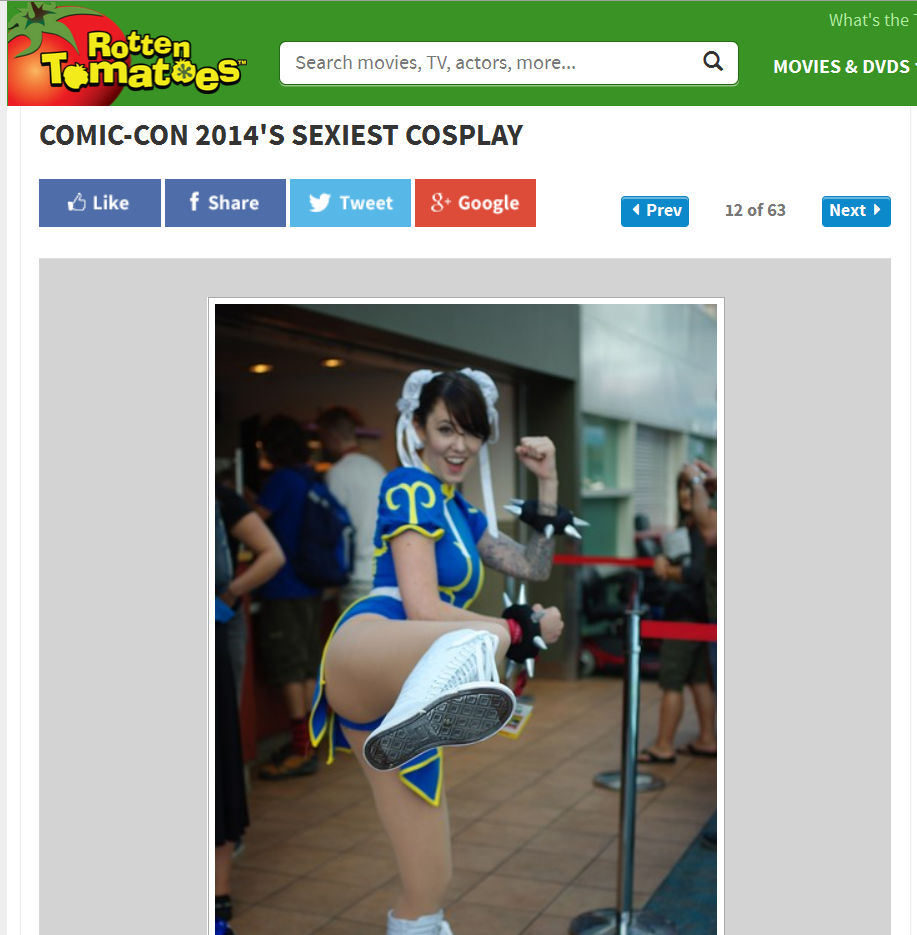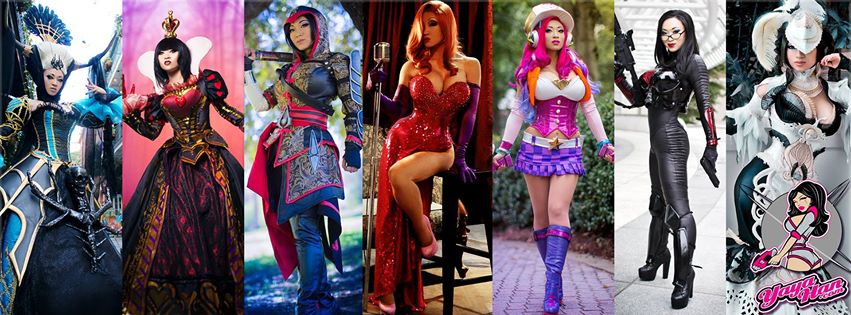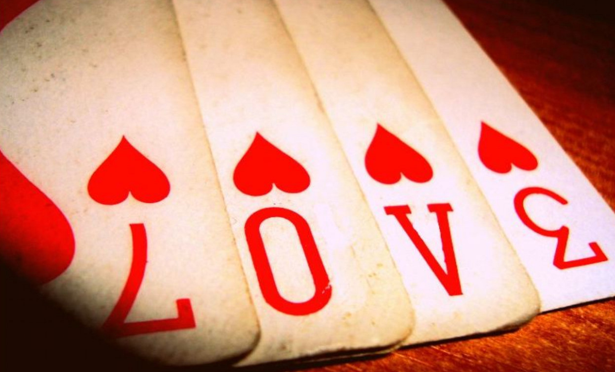Convention season is upon us and though what are arguably two of the most popular and publicized pop culture conventions in the United States – San Diego Comic Con (SDCC) and Anime Expo – are still a few months away, now is the time when I start to see a whole lot more cosplay cross my online feeds. Cosplay, for those who aren’t familiar with the concept, is the art of dressing up as and taking on the role of fictional characters from media like anime or video games, and it’s one of those things I’ve dabbled in and would love to do more of if I had the time and ability to do so. For the most part, the cosplay community is a welcoming, supportive place where everyone from casual cosplayers to advanced craftsmen give each other advice and geek out over cosplayers playing beloved characters. But there’s one topic that never fails to get some a little riled and the community divided: “sexy” cosplays and what, if anything, they’re doing to female cosplayers’ attempts to get respected and reduce the culture of objectification that tends to follow cosplay wherever it goes.
When pop culture websites cover conventions like SDCC, it’s not uncommon to find a good portion of the galleries devoted to “sexiest cosplays of the convention.” This is largely indicative of the difference between the way the internal cosplay community views cosplay and the way the mainstream perspective tends to. The cosplay community tends to highlight cosplayers (like Meagan Marie who we interviewed back in episode 50) committed to the technical skill or craftsmanship behind bringing a fictional character’s design into the real world. As fellow cosplayers, they understand and respect the meticulous hours of sewing, crafting, or doing makeup it takes to cosplay well. Like these “sexy” albums or photo collectives, mainstream and even some parts of “geek” culture has the tendency to sexualize and fetishize the very art of cosplay and highlight the “attractiveness” of the cosplayer rather than the effort involved with the craft.
I believe that this is the reason why many cosplayers seem to react in a hostile way towards what might be considered more “sexy” cosplays and why a cold war has raged for many years in the community over the publicity cosplayers like Jessica Nigri and Yaya Han, two cosplayers who tend to be known for their more sexual cosplays, receive from the mainstream media. Cosplayers like these tend to be somewhat internet famous and receive a lot of public attention for their cosplay and, with their tendency to choose costumes that highlight their breasts and pose provocatively, gain a certain amount of sexual attention not only to themselves but to the hobby in general. Thus cosplayers who oppose the increasing sexualization of the hobby may grow to resent these cosplayers for delivering what they consider to be a “wrong image” of cosplay to the masses, which results in the perpetuation of the idea that cosplay is at least partially an activity with an inherently sexual purpose. These concerns are, to an extent, valid, but ultimately it leads to these cosplayers in question receiving a good deal of hate from the cosplay community and being judged for assumptions made about their sexuality and their choice to choose these cosplays.
For quite some time I’ve struggled with the personal decision of whether or not I should be attempting “sexy” cosplays. In a way, choosing to cosplay a character with a revealing or otherwise sexually charged design seems dismissive of the very real concerns a female cosplayer faces by choosing to don one of these costumes. Will my choice to wear this contribute to the dismissal of cosplay as something akin to a nerdy fetish? Will it draw unwanted attention, harassment, or objectification and possibly help create an environment that attracts those convention goers who do sometimes make conventions unsafe places for women? Will consideration for the hours and effort spent preparing the actual cosplay be superseded by how attractive I may look while wearing it? Then there’s also the conflict regarding whether or not I can, in good conscience, choose to cosplay or even support someone else who chooses to cosplay the very characters I may critique for being objectified .
I’m sure I’m not the only one in the community who wrestles with these issues. I’m sure there are many cosplayers out there who have decided against cosplaying a character they genuinely enjoy because of the potential implications. But is it really so wrong to cosplay characters with a “sexy” design? While it’s certainly true that many of these characters are over sexualized and objects of desire in their source material, one of the best parts of cosplay is taking that original design and expanding upon it or making it your own. Sometimes this manifests in gender-bent cosplays or original costume designs, but I think it most often is revealed through the cosplayer adding a bit of themselves to the character. Because when we cosplay, we do more than just pretend to be a character – during the time we cosplay we take on the strengths of the character we’re cosplaying and, using them as a starting base, make them our own. Jessica Nigri, for instance, may choose particularly revealing or “sexy” cosplays that are often ogled and make her the object of the male gaze, but she’s confident in herself and that’s how she chooses to express herself in her cosplay.
That’s why I firmly believe that the real problem lies not in the cosplayer’s decision to wear a “sexy” cosplay, but in our culture that both presents these cosplayers as objects of desire or fantasy while teaching us to shame them for embracing their sexuality. It’s also one that often conditions the topic of sexuality to overrule any other discussion. Yaya Han, for example, is certainly a sexy cosplayer, but she’s also incredibly talented and creates some of the most detailed and intricate cosplays around. Too often conversations on cosplay get so fixated on what degree of “sexiness” is “okay” or how “sexiness” determines a cosplayer’s worth – both by cosplayers and laypeople alike – that the true art and fun of cosplay gets lost or a cosplayer’s talent gets dismissed.
Overall, though concerns over the implications of sexualized cosplays are valid and real, all too often the blame gets placed on cosplayers for supposedly perpetuating these problems rather than on a culture that seeks to simultaneously objectify and condemn them.






